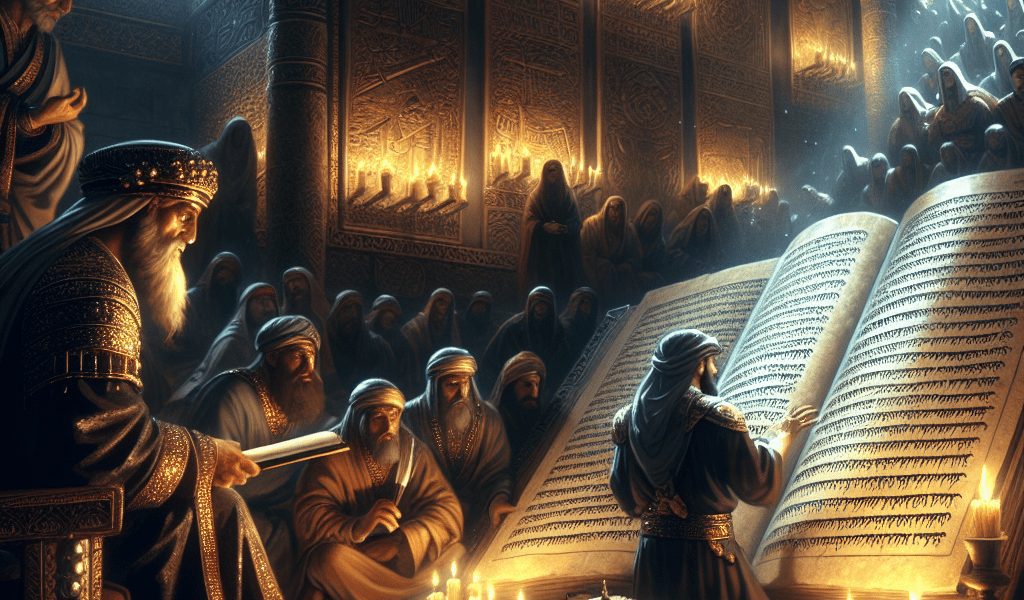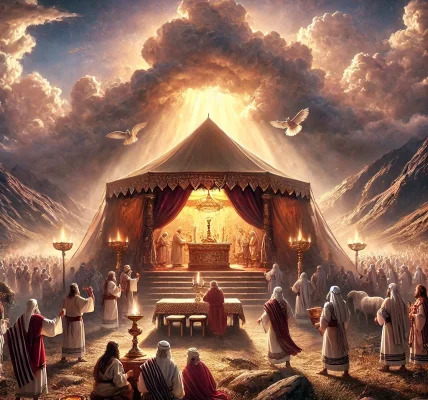In the kingdom ruled by King Ahasuerus, there occurred an event which altered the course of several lives. One evening, the king found himself restless, unable to find the peace that sleep usually offered. Disturbed by his insomnia, he ordered the book of chronicles to be brought before him, the records of his reign to be read aloud.
Within these pages, it was discovered that Mordecai, a Jew, had revealed a treacherous plot contrived by Bigthana and Teresh, two of the king’s chamberlains. They had sought to assassinate King Ahasuerus, their plan thwarted by the vigilant Mordecai. Amazed by Mordecai’s loyalty, the king inquired about the reward or honor bestowed upon Mordecai for such a service. He was informed that nothing much had been done for Mordecai.
Then, a man named Haman, an ambitious character who felt a profound enmity towards Mordecai, entered the court. His intention was to convince the king to hang Mordecai. As Haman stepped into the court, the king was wondering whom to honor. He asked Haman, “What shall be done unto the man whom the king delighteth to honor?”
Believing the king was referring to him, Haman suggested an elaborate honor. He proposed that the person should be clothed in royal apparel worn by the king, ride on the king’s horse adorned with a royal crown. Additionally, this honor should be publicly displayed, with the man paraded on horseback through the town streets with a proclamation declaring the king’s delight to honor him.
Haman’s surprise was palpable when the king asked him to do just as he suggested, but for Mordecai, the Jew. Haman obediently took the attire and the horse, arrayed Mordecai in them, and helped him through the city, as the king ordered, proclaiming, “Thus shall it be done unto the man whom the king delighteth to honor.”
Following this, a humiliated Haman returned to his house, filled with grief and shame. He recounted his day to his wife, Zeresh, and his friends, who predicted his downfall if Mordecai indeed was of Jewish descent.
At this time, the king’s men arrived, hastening to bring Haman to a banquet prepared by Queen Esther. The irony of the situation was tangible, with the day’s events setting the stage for a dramatic unfolding story of courage, honor, and divine intervention.




